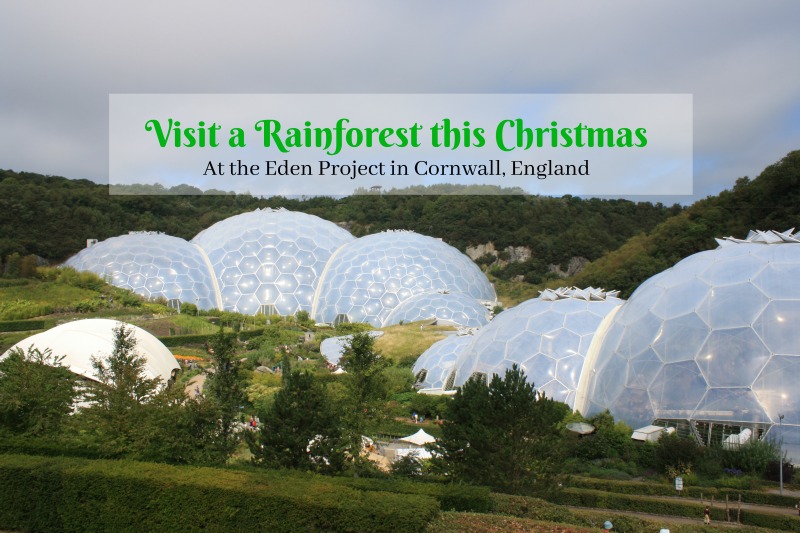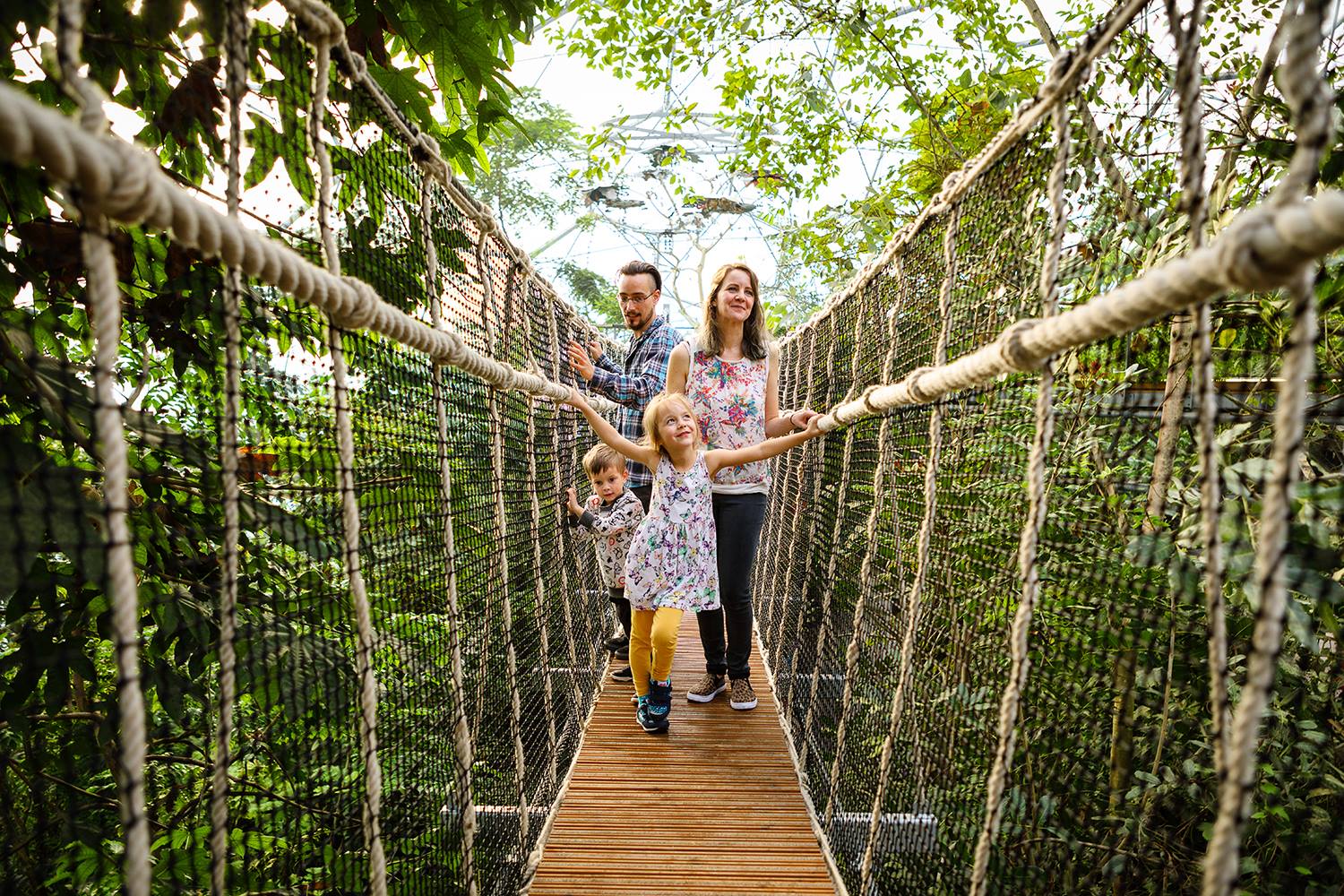
The rainforest canopy walkway/photo: Eden Project Facebook
Surrounded by other sweaty travellers, my 4-year old son and I ascend into the lush tropical rainforest. We walk past a banana tree, a bed of pineapples, a rubber tree. Small, tropical birds swoop overhead.
At a small cabana with a palm-leafed roof, a friendly local is selling sweet baobab smoothies (rum optional). The exotic drink, infused with turmeric and cinnamon, is thick, refreshing, and delicious. The baobab tree, we are told, is native to Africa, and produces a powder which is rich in vitamins, minerals and anti-oxidants. We pass on the rum.
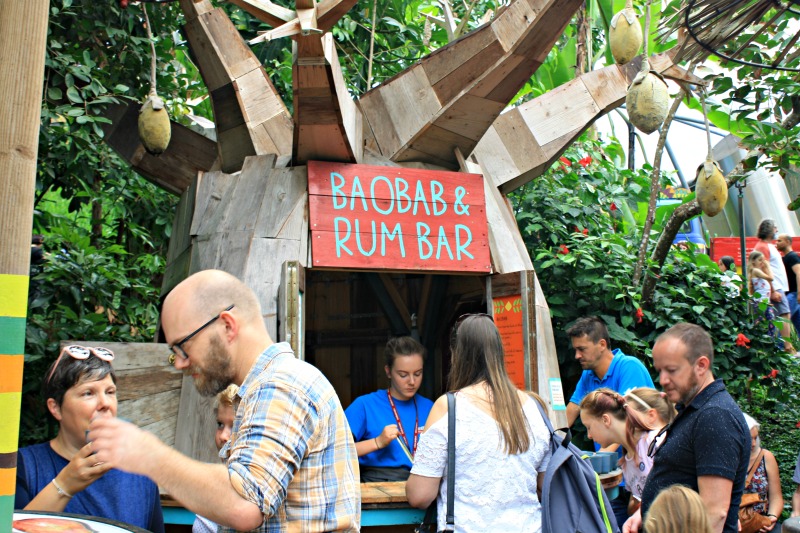
Baobab and Rum Bar at the Eden Project/Photo: Helen Earley
It is so hot and humid that my son removes his shirt, but no one seems to mind. There are other half-dressed children here, and a few babies wearing only a diaper. Every so often we see a warning notice. Specific areas are off- limits for visitors with high blood pressure. Today, because of the extreme heat, The Lookout, a vertigo-inducing viewing area high up in the palms, is off-limits, period.
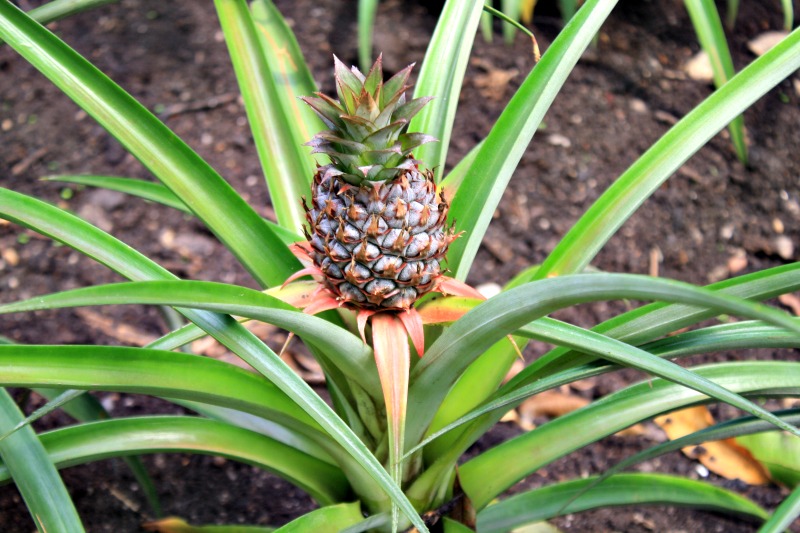
A pineapple at the Eden Project – no, they do not grow on trees/Photo: Helen Earley
Half an hour later, we are back in the fresh English air, sipping a piping hot coffee, and munching our way through a stack of homemade cheddar cheese sandwiches, packed earlier that morning.
My family and I are not in Brazil, but Cornwall, England, at The Eden project – a tourist attraction, education centre and concert venue located on the outskirts of the town of St. Austell. The iconic features of Eden are two giant space-age looking domes. These are biomes, each one containing a distinct ecosystem.
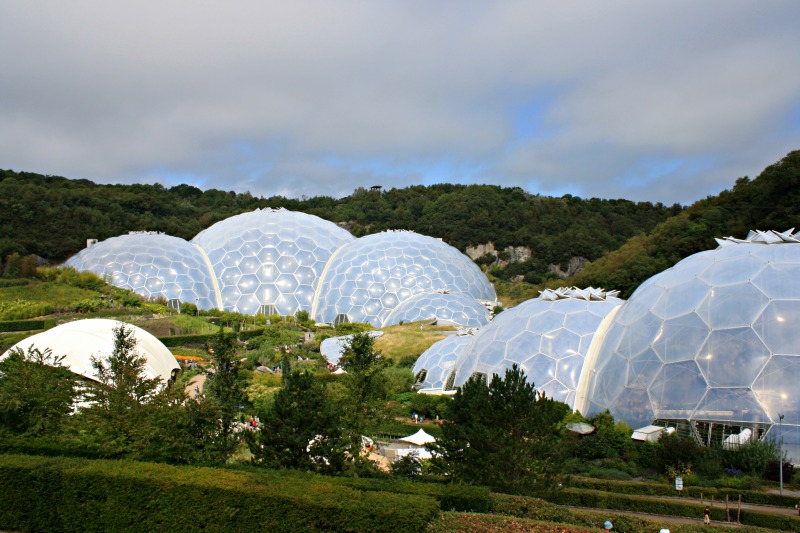
Space-aged seeming biomes at the Eden Project, Cornwall/photo: Helen Earley
Year round, the rainforest biome grows a collection of flora and fauna that you would only see in the tropics.
Rain, shine or snow, the Mediterranean biome grows lemons, rosemary and olives native to Italy, Greece, South Africa and Western Australia. It also has a very authentic mediterranean restaurant, The Med Kitchen, where today, the chef is turning rice and giant prawns in a massive saucepan of Paella.
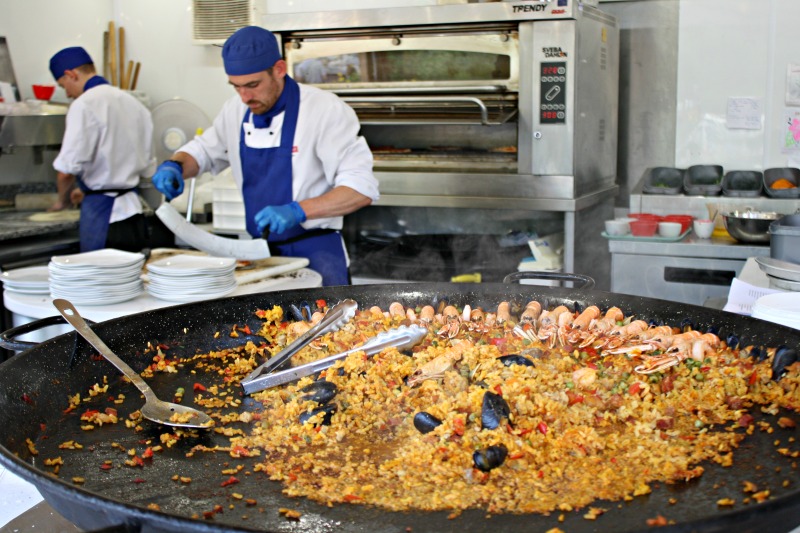
Paella at the Med Kitchen/photo: Helen Earley
Connecting the biomes is a link building containing the Ethical Gift Shop and the Eden Kitchen, an enormous cafe-style restaurant. Although the freshly made burritos and nachos look mouth-watering, eating at Eden can be expensive for a family of four (thus the homemade cheese sandwiches).
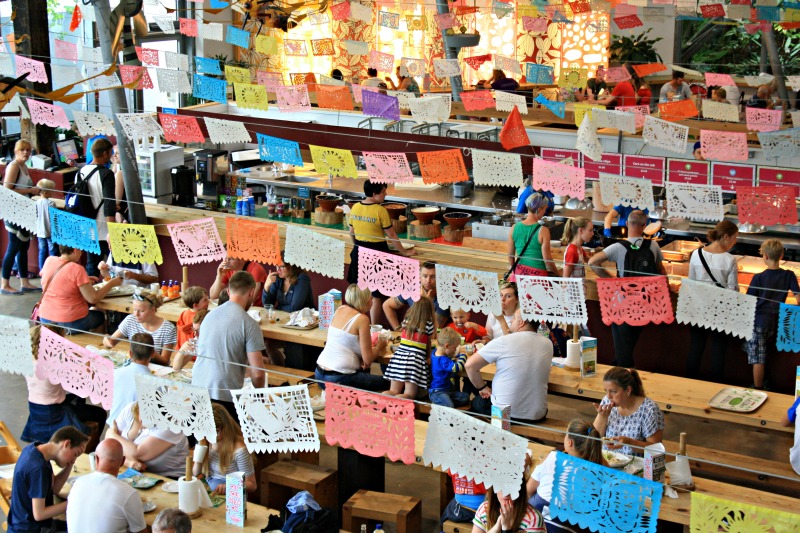
Eden Kitchen/Photo: Helen Earley
Eden was built from the remains of a kaolin mine. Kaolin clay, also known as “china clay” is one of the primary drivers of the economy in rural Cornwall, a relatively disadvantaged part of the UK. The project was spearheaded by Dutch-born record-producer and businessman, the now knighted Sir Tim Smit, who had already seen success with The Lost Gardens of Heligan, a 200-acre garden, in nearby Mevagissey, which was brought back from ruin in the early 1990’s.
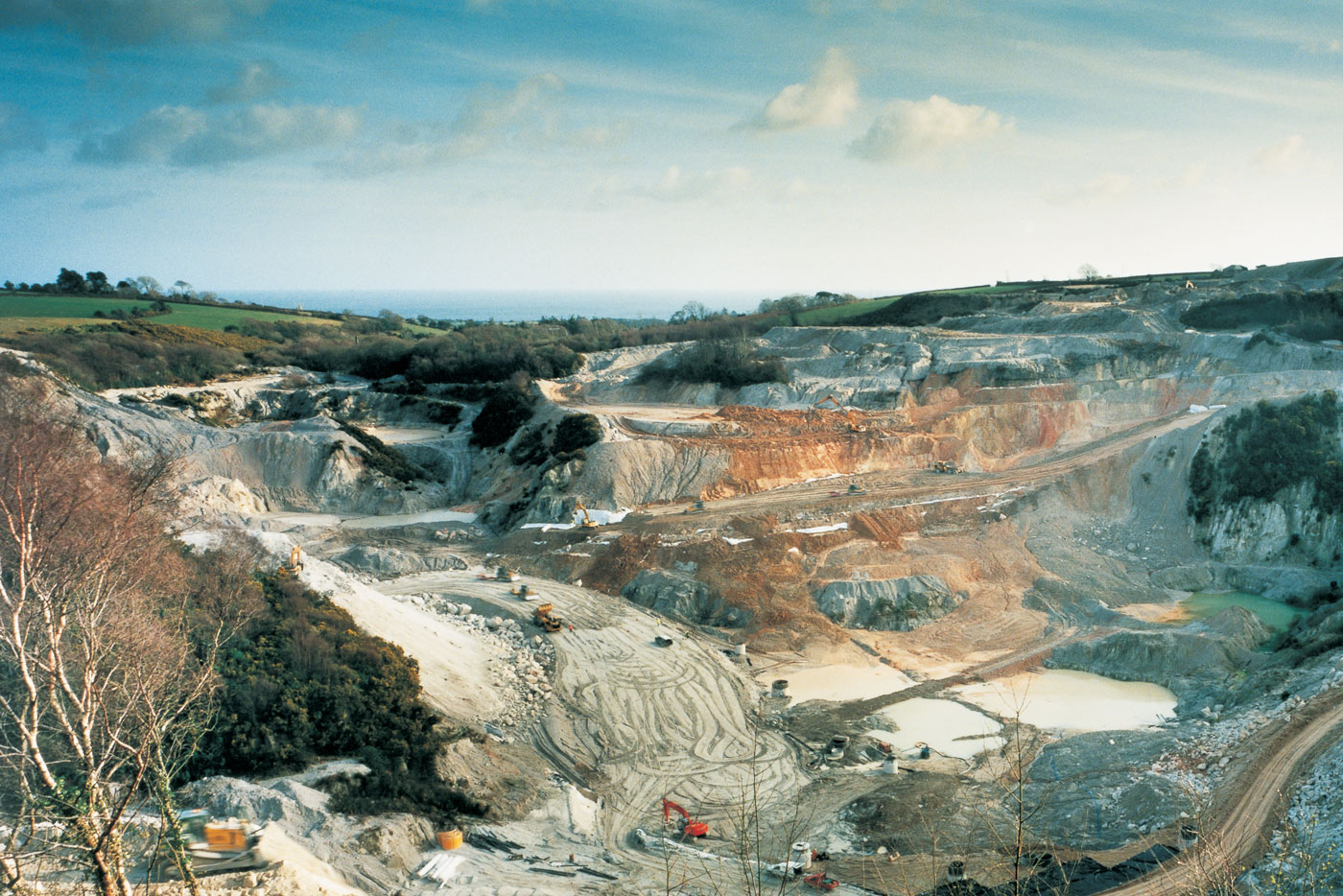
Land before Eden: The bare kaolin clay pit mine outside of St. Austell, Cornwall/Photo: Eden Project Facebook
It’s a chilled-out family adventure paradise where you should plan to spend an entire day, or even two. From an open clay pit to lush, fantastic new world, Eden also houses the Hang Loose Adventure Centre, with England’s longest and fastest zipline. We passed on this too but enjoyed hearing the whizz of adventurers braver than ourselves, flying over the biomes.
For a place to stay, the YHA Eden -is a youth hostel made of ultra-modern, eco-friendly “Snoozeboxes” – high-spec hotel rooms (think flat-screen TV’s and en-suite bathrooms) made from recycled shipping containers. The YHA at Eden, like most British YHAs, has a self-catering kitchen, a cafe serving snacks and breakfast, and a licensed bar and lounge area with games and activities for children.
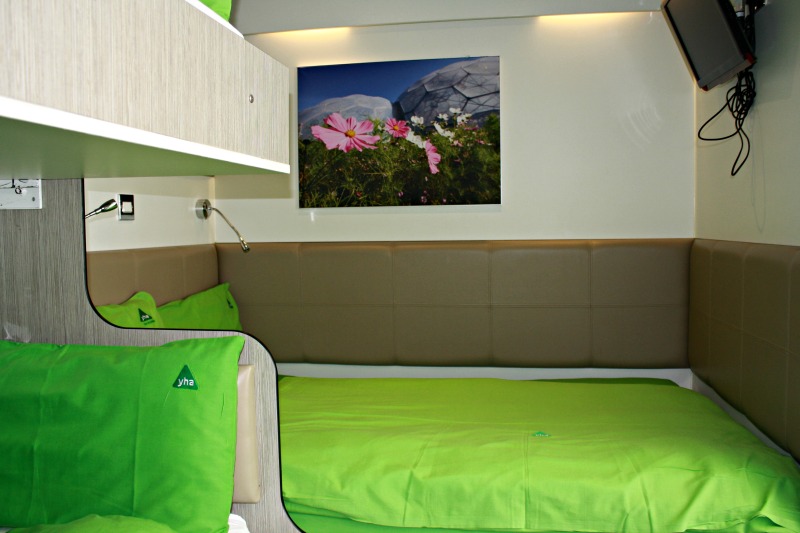
The snoozebox: family accommodation made from a recycled shipping container/photo: Helen Earley
Research, as well as tourism, happens at Eden. Many of the people you will meet have come from universities from all over the world to conduct research in the artificially created environments. Post-graduate courses such as the Masters in Sustainability with Anglia Ruskin University’s Global Sustainability Institute offer work placement at Eden.
Additionally, there are full or part-time university courses offered in Horticulture, Gardening and Landscaping Design, Renewable Energy Technologies and even Event Management.
There are concerts too. Good ones. In 2017, high-profile performers who performed at the venue during the summertime Eden Sessions included Madness, Blondie, Van Morrison and Bryan Adams. Past performers have included Amy Winehouse, Oasis, Spandau Ballet, Mumford and Sons and Peter Gabriel (twice).
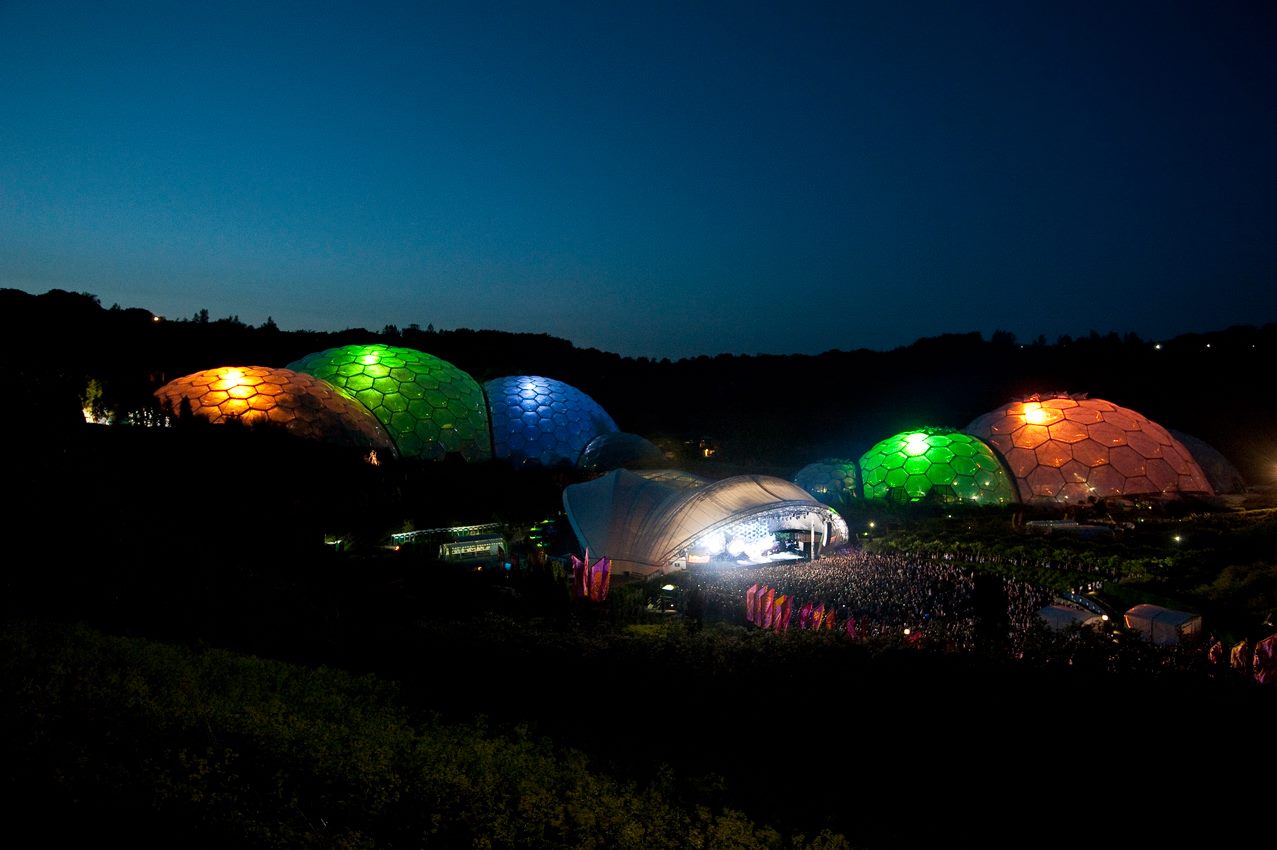
Eden Concerts/Photo: Eden Project Facebook
Cornwall has a mild climate, so there’s no stopping Eden being open all year round. Winter is an especially pleasant time to visit because there are fewer tourists and school groups.
From late November until February, there is a large ice rink where skates can be rented, and manual wheelchairs are welcome (Eden is very accessible, generally). The Mediterranean biome is decorated with festive plant displays, and the menus will reflect local, seasonal fare – warm casseroles, mulled wine and mince pies.

Santa at the Eden Project /Photo: Eden Project Facebook
Inside his cosy tent (an elaborate giant yurt, actually), you will find much more than just old Saint Nick. Santa’s HQ contains the elves’ bunk beds, pigeon-hole mailboxes containing all children’s letters, and a team of elves to help spread cheer.
If we ever go at Christmas, I think I’ll leave the kids with Santa and explore the rainforest biome on my own. First stop? The baobab bar – and this time, I’ll have the rum.
If You Go:
You can visit the Eden project online at www.edenproject.com. Sessions with Father Christmas must be booked in Advance.
Follow the Eden Project on Twitter, Facebook or Instagram
There are lots of events happening in Cornwall over Christmas. Check out Cornwall Tourism for more details.
If you can get your hands on some baobab tree powder (available at the Eden gift shop, and in Africa), here’s the recipe for a Baobab smoothie. Just add rum!
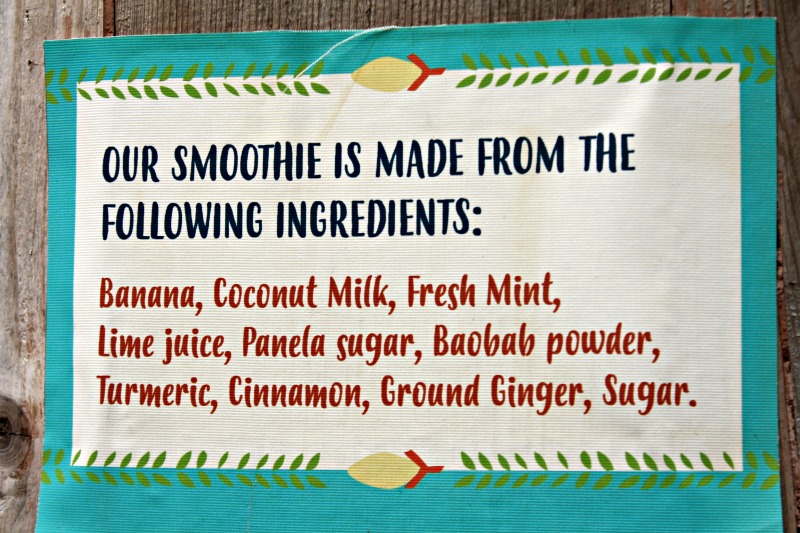
Recipe for the Eden Project Baobab Smoothie/photo: Helen Earley

